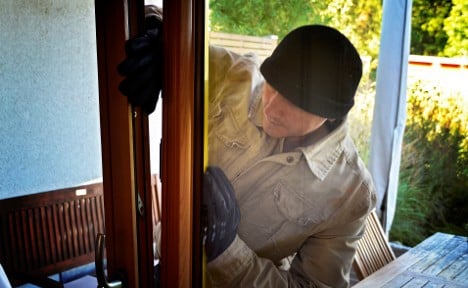Organised thieving gangs also seem to be on the increase while the days of the individual cat burglar would seem to be over.
Large towns and cities are the worst hit, with break-in black spots covering the urbanized western state of North Rhine-Westphalia, according to the study based on figures from the Statistics Office published this week by geld.de insurance portal.
In towns with more than 100,000 people, one in 175 houses and flats are broken into, the portal’s statement said.
In 2011, the last year for which statistics are available, there were 132,595 break-ins, an increase of 9.3 percent on the previous year. This produced costs of more than €400 million.
The worst-hit town was Recklinghausen in the northern Ruhr area. There police recorded 591 break-ins per 100,000 people. This was followed by Bremerhaven with 578, and Düsseldorf with 566 per 100,000 people.
On the other end of the scale was Munich, which reported a mere 63 incidents per 100,000 and came 102nd on the list, even after an increase of 9,1 percent on the previous year.
Collaborative crime is on the rise, with incidents only rarely involving individuals acting alone.
The study also highlights an increasing trend of so-called “climber-gangs”, who enter upper floors of houses by way of scaling the drainpipe.
Police largely fail to catch the thieves, with nearly 80 percent of such crimes remaining unsolved – although incidents in the east are more likely to result in the clicking of handcuffs.
The Local/mjl




 Please whitelist us to continue reading.
Please whitelist us to continue reading.
Member comments